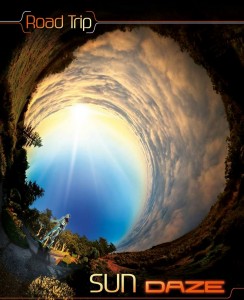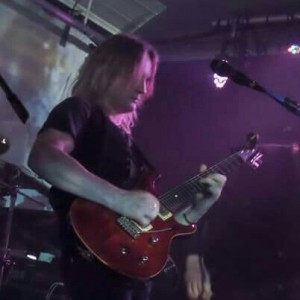You say that music has its own language. Can you please explain what you mean?
Music has its own modes of expression, gesture and structure, which can also be seen in the structure of verbal language. For example, a sentence can equal a riff. Similarities between the syntax used in conversation can be analogous to the gesturing inherent in various types of musical phrases. Musical conversation can be observed in the ‘question and answer’ motifs often used by duelling in musicians, with blues and rock players who gesture to each other.
Music instantly affects my emotions, as opposed to any other art, but is transient. Is music more about feeling?
Music can be about feeling, it can be about something transient, but also something less so if it stays or lingers in the mind, and perhaps provokes subliminal questions or attitudes that may surface in other forms of communication. For example, if you listen to a sad piece of music, that then translates into affecting a conversation with someone in a way that might have been different if the conversation had taken place after listening to something happy, jolly, up tempo, aggressive etc.
Is there a recurring theme in your work? What do you care about?
.Recurring themes in my lyrics are often connected with philosophy and politics. I think a lot about the meaning and the value of doing things, and analysing this in the sense of fairness, justice, consumerism and escapism. I often comment on the machine like nature of society, how people are controlled without realising it (a good analogy is in the film The Matrix) and the ‘battery hen mentality’ of its citizens, a lyric I used in a song before the concept of the Matrix became available to me.
You attended Dartington College of Art, a specialist institution in Totnes, Devon. Tell us about your concept piece Mind’s Eye.
Minds Eye was a solo album recorded on a Commodore Amiga computer using a Yamaha sound module a few years before I went to Dartington, but it was used to support my application to study there, and was probably the main reason I got an unconditional offer. It was done using purely midi technology, and this skill was eventually to come in useful in my final year project at the college, where I produced a completely automated sound/lighting piece.
Which album has inspired you, lyrically?
One of my favourite albums in terms of lyrics and imagery would be Astounding Sounds and Amazing Music by Hawkwind. The track Steppenwolf particularly expresses the contrast between society and its customs, the individual and the unconscious, and the animal nature hidden beneath the masked exterior of human etiquette.
You have a new album called Sun Daze. What are the concepts behind it? I love the song title Who Ate My Piecycle!
The idea behind Sun Daze really draws from the concept of escaping to a better place, away from the rat race, perhaps an eternal sunny summer’s day out in the fields with a best friend/lover, which the album photo on the inside cover, taken by a lovely friend of mine, encapsulates. It also is moody and rebellious in terms of notions of a wider idealism generally, and of grappling with the difficulty for anyone to be truly authentic in a modern day world. Who Ate My Piecycle is instrumental, and I think the title reflects its quirkiness, though its meaning is purely an irreverence towards reality, I guess, i.e. escapist creativity.
What would you say is the most important element in your song writing?
The most important element in song writing is firstly the amount of passion/drive you have at the time, and the quality of the initial seed that kicks off your creativity. Then the hardest part to me is in re-arranging and perfecting a composition.
About your creative process. Where do you usually find your muse? And can you summon her?!
The creative process for me can be a combination between catharsis and a desire to create and build something lasting beyond myself. It helps a person escape worries and everyday drudgery and repetition, and the world of sound can have its own sensuous delights to entice.
Can you please share with Ink Pantry a couple of examples of your song writing, from your album Sun Daze?
Spiral Path
In a downward spiral, on an upstairs path, reflect the fantastic, escape the mundane.
In a cool river, lagoon of peace, magic surrounding the sounds, chasing a rainbow inside the dream.
Staring at the Sun
Gazing through a lens of imagined paradise, utopia cannot describe, revelation and childlike wonder, only adulterated by illusions of beauty.
Sun Daze is available on CD Baby:
http://www.cdbaby.com/cd/roadtrip3
https://www.facebook.com/Roadtrip6/?fref=ts


